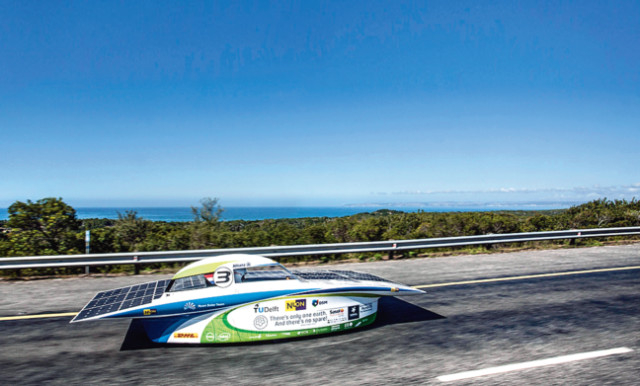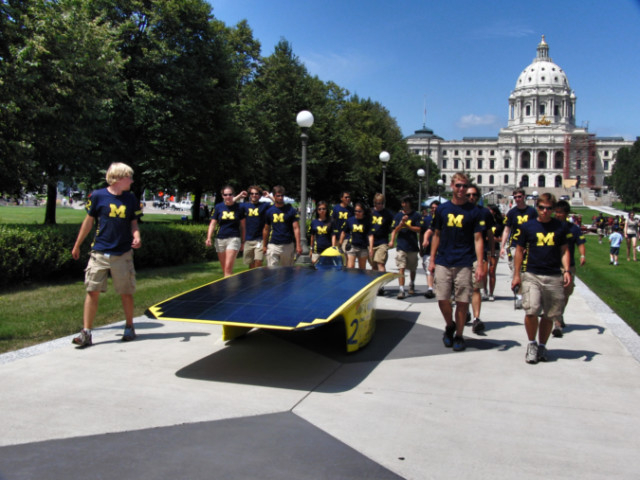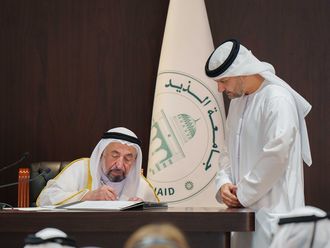
ABU DHABI Alatqa Waddah Al Hanai is an excited young man. A master’s student in mechanical engineering at the Petroleum Institute in Abu Dhabi, he can’t wait to race into history tomorrow.
Participating in the first ever Abu Dhabi Solar Challenge (ADSC), a cross-country road extravaganza in which students from six continents will be competing with their hand-built solar powered cars, Al Hanai said: “This is the first event of its kind in the region and the first time that a team from the UAE will be taking part in a solar challenge.”
Sanctioned by the International Solarcar Federation, the event is being jointly organised by Innovators Educational Foundation and Professional Sports Group.
Leading a team of 40 students, all from the Petroleum Institute, Al Hanai said the challenge coincides with the Abu Dhabi Sustainability Week 2015 and will see over 20 university teams from around the world cover a distance of 1,200 km in their solar cars only to drive home a message.
“The message is simple: solar cars are not a technology of the distant future. Solar energy is relevant, applicable and usable today. This entire event is aimed at proving that solar energy is a viable, alternative energy resource.”
UAE team
He said the solar car with which the UAE team will race was designed with help from Tokai University of Japan. “They helped us design it and we have assembled the car here in the UAE. The solar car project started off as a course at PI and we also attended the Australian Solar Challenge to get a better idea.”
He said the solar car has been designed to sustain an endurance race. It requires not only the driver and mechanics, but full-fledged support teams on the same lines as professional motor racing teams.
Throughout the challenge, the solar car will travel with a convoy of support vehicles, including a lead vehicle that can identify problems or obstacles and a mission control vehicle. Other vehicles carrying replacement drivers, spare parts, maintenance support, as well as supplies and camping equipment for the team will also follow.
Prequalifying rounds being held through a number of static and dynamic sessions, with the cars competing head-to-head for pole position on the track will end on January 15. The race itself will begin the next day at The Yas Marina Circuit and move on to the Corniche, Al Ain and end at Masdar. The next two days will see the race circling around the western region, said Al Hanai.
The winner of the ADSC will be determined by the total elapsed time to complete the cross-country route. The mix of city and highway driving on public roads of varying conditions makes careful energy management critical. Teams must also ensure that they follow the route precisely and obey all the rules of the road or they risk costly time penalties.
YOUSPEAK: Will solar cars eventually replace conventional ones?













